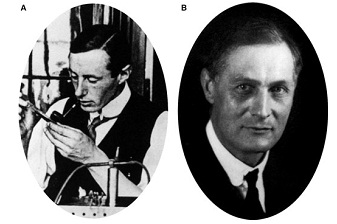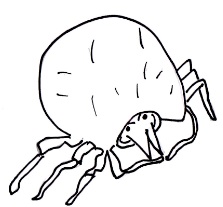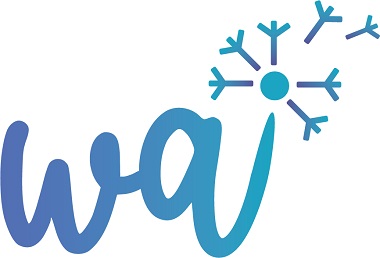This week has been another huge learning curve at the National Allergy Strategy Group (NASG) All Party for Allergies parliamentary session.
Chaired by Mandy East of NASG and kicked off by MP Jo Swinson, the session was a mixture of heart felt and honest stories from a range of different people, sharing their experience of living with airborne allergies and the NHS response, treatment or failure to help.
Jo Swinson has multiple allergies herself and has a real passion to make a difference, to help instigate change, and in her position as an MP she uses every opportunity to bring up the issues of funding, priorities and treatment for the growing population of the UK with allergies.
Dr Glenis Scadding also shared very interesting results and theories which seem to suggest that the early treatment of childhood hay fever and minor allergies can result in far fewer children developing worse asthma and allergies in later life. Studies are going on at the moment to test this theory but early findings are very positive.
This was also borne out through the real life experiences of two of the delegates at the seminar. One, a young boy who had suffered and struggled in younger life with severe debilitating allergies, but since finally having immunotherapy treatment as a young adult has almost no symptoms at all and is enjoying a full, healthy and active life. Another a mother whose young son had a serious dust allergy as child which was cured through immunotherapy when living in Singapore; the allergy injections her son was able to get through their health service and on the family insurance was just not available when they moved to the UK. She was shocked that something that was considered normal in the US and in Singapore was not even considered here, and as she discovered, only available after much searching through a private clinic which specialised in treating Americans who needed their trusty ‘allergy shots’, otherwise unavailable.
I was shocked but not surprised to learn that Britain was a forerunner in groundbreaking immunotherapy treatment back in the 1900’s. Leonhard Noon and John Freeman published their pioneering work with allergy specific immotherapy (ASIT) a hundred years ago this month, entitled, “Prophylactic innoculation against hay fever” on June 10, 1911 in The Lancet. Using samples of grass pollen they conducted the first human trials and their techniques were taken up across the world to treat various allergic conditions.
(A) Leonhardt Noon (1878–1911) and (B) John Freeman (1877–1962), the pioneers of allergen-specific immunotherapy.
Later in 1992 Henry J Palacios wrote a paper called “Allergy Diagnosis and treatment in family and general practises”, published in the Southern Medical Journal. In it he discusses immunotherapy, concluding at one point that, “… effective specific therapy of allergies has been made possible by using slowly released antigens that are safe and easy to formulate and administer. Large scale implementation of sound allergy diagnosis and treatment by generalists could lead to the establishment of a super field capable of solving many of the problems out of the reach of specialised fields.”
Yet in the UK this treatment still seems to be a long way out of our reach. In the 1980’s our government decided to stop immunotherapy treatment in favour or prescribing anti-histmines and other drugs to treat the symptoms of allergies, rather than stop them in their tracks as immunotherapy can successfully do.
The way immunotherapy works is to stop the production of IgE cells in the body, promoting tolerance to the allergen in question. It does this by stimulating the production of ‘regulatory cells’ which counteract the potential reactions. The treatment can last for a few years, or longer in some patients; it can even eradicate allergies for good in some cases. In others the treatment will need to be repeated after a few years.
This strikes me as very short sighted. Surely much funding and long term suffering could be saved if these life changing treatments were to be allowed again in the UK. Currently only those who can afford to seek private medical assistance or a handful of lucky children who are benefiting from small local trials are able to benefit.
Once again we see a post code lottering coming into play. There is a new treatment called Grazax for grass allergy which is proving very successful, but it’s only available to a very few people who have very serious grass allergy, and only offered by certain doctors. It seems to be something that is only available if a doctor is aware of it and understands and can see the benefits. My own sister was lucky to be given Grazax by her doctor and it has changed her life dramatically.
It appears to have helped with her asthma, eczema and the grass allergy. She seems to be generally less sensitive and is able to mow the lawn – something that would have made her ill in the past. Grazax is taken from the comfort of your own home, does not involve injections, and lasts about two years, taken in pill form every day. Containing a small amount of grass pollen, the tiny pills slowly desentise the patient, allowing them to go about a normal life without being tormented by their allergen anymore.
What about the huge and growing population of people with allergies? With trends showing that children born atopic, with eczema, asthma and hay fever being far more likely to have more problems as they grow older, with more allergies and intolerances developing, immunotherapy could prevent a great deal of suffering. More and more children and adults are finding food and environmental factors a problem, causing sensitivities, allergies, asthma and in rare cases, death.
Could immunotherapy be one simple way to slow the allergic march? Bring back immunotherapy to the masses! That’s what I say!













I agree! That is really ironic that it isn’t available in the UK, sad actually. While immunotherapy certainly isn’t for everyone, it is a very effective solution for many people.
I had very bad allergies – mostly to ragweed. So bad that I was in Urgent Care/ER about every fall, sometimes several times a year. I finally got things ‘under control’ by taking 5 different prescription medications. That got old very fast. I decided to try allergy shots, the first fall I had minor symptoms and had to use my medication only about once a week! The next year I didn’t use any medication through the entire season and I’m outside a lot in the summer and fall. I’ll be getting my monthly shots for probably a few years yet just to be sure, but they have truly almost ‘cured’ my allergies!
That is amazing! Why don’t we have them in the UK? Just another sad and disappointing trend in UK history to create something good and then either forget about it and rediscover years later or sell out to another country. Very disappointed in the medical industry and NHS on the whole. If it’s not life threatening you can just sort yourself out. I’m all in favour of that but when something so simple could change the lives of so many Brits… only the rich can get immunotherapy. Things are changing. Some post codes do offer immunotherapy now but very few – it’s a post code lottery and I’m living in the wrong one! Rant over…